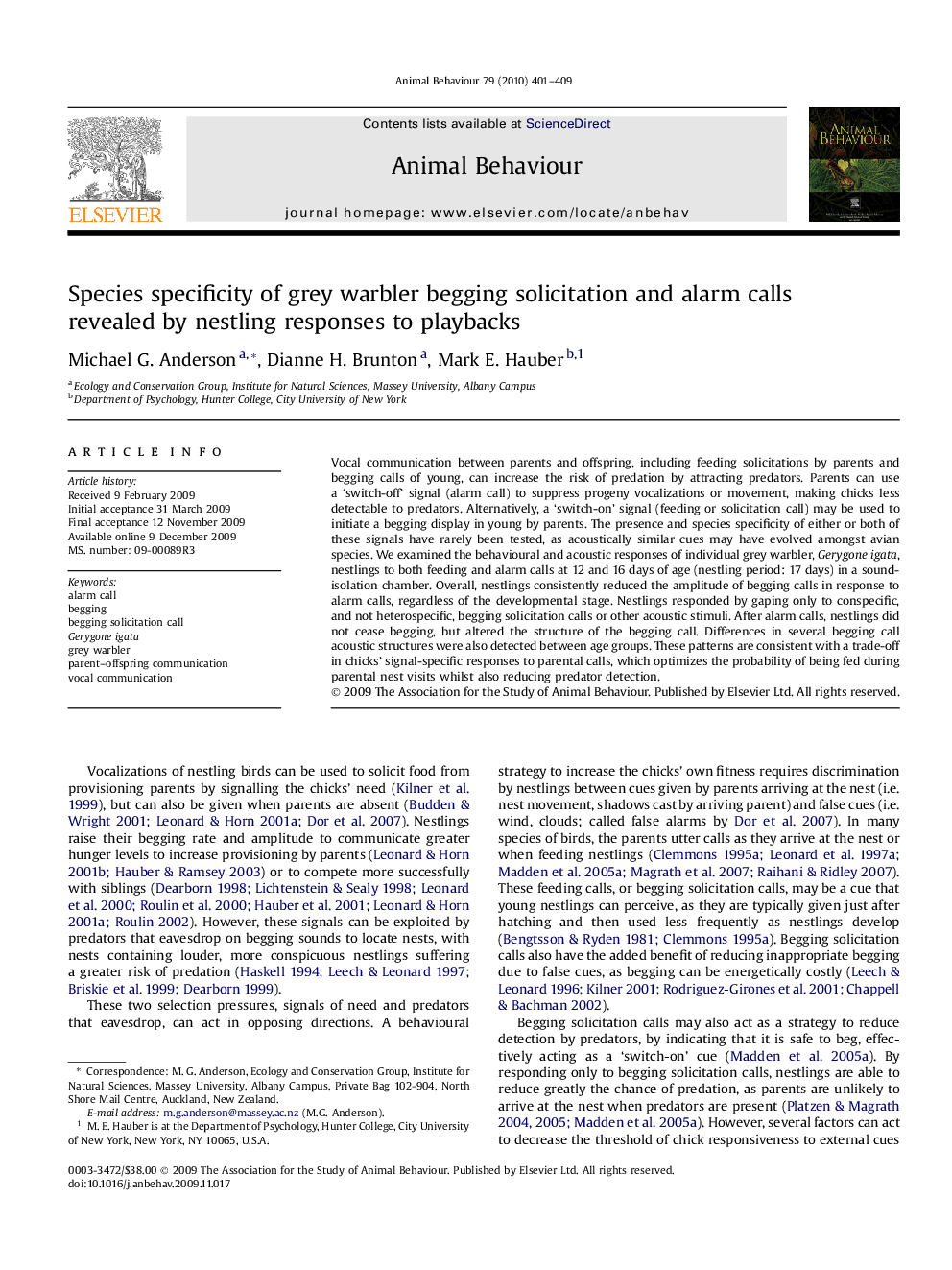| Article ID | Journal | Published Year | Pages | File Type |
|---|---|---|---|---|
| 2417484 | Animal Behaviour | 2010 | 9 Pages |
Vocal communication between parents and offspring, including feeding solicitations by parents and begging calls of young, can increase the risk of predation by attracting predators. Parents can use a ‘switch-off’ signal (alarm call) to suppress progeny vocalizations or movement, making chicks less detectable to predators. Alternatively, a ‘switch-on’ signal (feeding or solicitation call) may be used to initiate a begging display in young by parents. The presence and species specificity of either or both of these signals have rarely been tested, as acoustically similar cues may have evolved amongst avian species. We examined the behavioural and acoustic responses of individual grey warbler, Gerygone igata, nestlings to both feeding and alarm calls at 12 and 16 days of age (nestling period: 17 days) in a sound-isolation chamber. Overall, nestlings consistently reduced the amplitude of begging calls in response to alarm calls, regardless of the developmental stage. Nestlings responded by gaping only to conspecific, and not heterospecific, begging solicitation calls or other acoustic stimuli. After alarm calls, nestlings did not cease begging, but altered the structure of the begging call. Differences in several begging call acoustic structures were also detected between age groups. These patterns are consistent with a trade-off in chicks' signal-specific responses to parental calls, which optimizes the probability of being fed during parental nest visits whilst also reducing predator detection.
